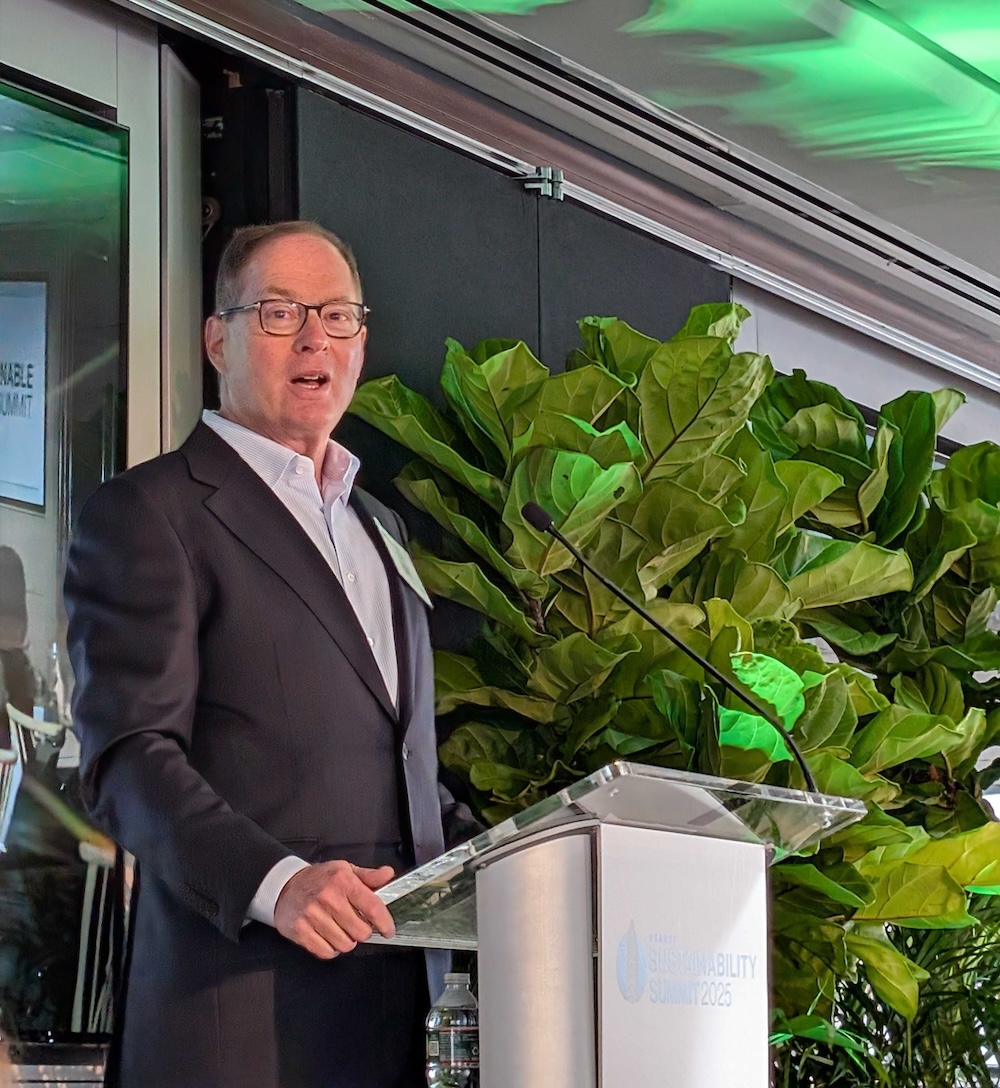
(Illustration: tostphoto/Adobe Stock)
He spoke at the Conservative Political Action Conference during his sophomore year in high school in 2014. Now the right-leaning environmentalist is lobbying for nature to become depoliticized.
“It is a complete failure of society that the environment has been caught up in the culture wars,” Benji Backer told an Earth Day gathering of business leaders in New York today.
Backer, whose organization Nature is Nonpartisan launched earlier this year, is advocating for a shift in the narrative around fighting climate change.
“We’ve done extensive polling and people who don’t live on the coasts don’t care about sea-level rise,” Backer said at the Hearst Communications, Inc. sustainability summit.
Rather than focusing on endangered polar bears and similar imagery, Backer encouraged companies, NGOs and others pushing for climate action to stress the ways local communities can be protected.
“It's a communications challenge at this point,” he said. “We can't just be talking to liberal people … and urban people about this, because there’s a whole country out there that cares about the environment way more than we think they do. No one is tapping into those peoples’ lives.”

The U.S. Clean Air Act, Clean Water Act and Endangered Species Act were signed into law in the early 1970s under Republican administrations, with strong Democratic support, said Backer, maintaining that “it is not a pipe dream” that bipartisan support can be restored.
The reasons that hunters, fishers, farmers and foresters in rural communities care about protecting ecosystems are different from people who live in New York City and Seattle, but the outcome is the same, Backer said. Yet messaging about climate change often doesn’t resonate with conservative voters.
“When people think about climate change, they don’t think about nature. They think about AOC [New York Rep. Alexandria Ocasio-Cortez] and Bernie Sanders and windmills and things that are kind of polarizing,” he said. “Climate change is not just about energy and transmission and EVs and all that stuff. It’s also about forests and lakes and trees and mountains and things that we all love. That’s been completely displaced in this conversation.”
What terms are not politically charged?
“The words matter so much. There are four words that don’t polarize people when it comes to the environment: nature, conservation, stewardship and environment,” Backer said, cautioning that just adding two or three letters to create “environmentalism” or “environmental” can rev people up negatively.
Business leaders who are feeling destabilized this Earth Day can benefit from looking at the current political environment as "a time to get real" and focus on the business benefits of sustainability, added David Carey, SVP of public affairs and communications at Hearst, who preceded Backer on stage.

Understanding the perspectives of those on the opposite side of the political spectrum can be "clarifying," Carey told attendees of an Earth Day sustainability summit at the media and information company's Manhattan headquarters, a 46-story glass and steel tower that had the distinction of being New York's greenest office tower when it opened in 2006.
"They hope this is the end of … empty corporate promises — CEOs who pledged net-zero goals that were never going to happen. The only thing they were sure about is they were not going to be the CEO when that date came due when they had to reach their goals," Carey said.
A scarcity of clarity can also be an accelerant of needed transformation, said Carey, recalling the 1970s gasoline crisis that forced U.S. automakers to catch up to Japanese car companies in producing fuel-efficient cars.
Dave Armon is Executive Vice Chairman of TriplePundit's parent company 3BL, the leading sustainability and social impact communications partner for companies and NGOs that ranks the 100 Best Corporate Citizens. A former journalist, Dave spent 20 years in management at PR Newswire, where he was president and COO.














